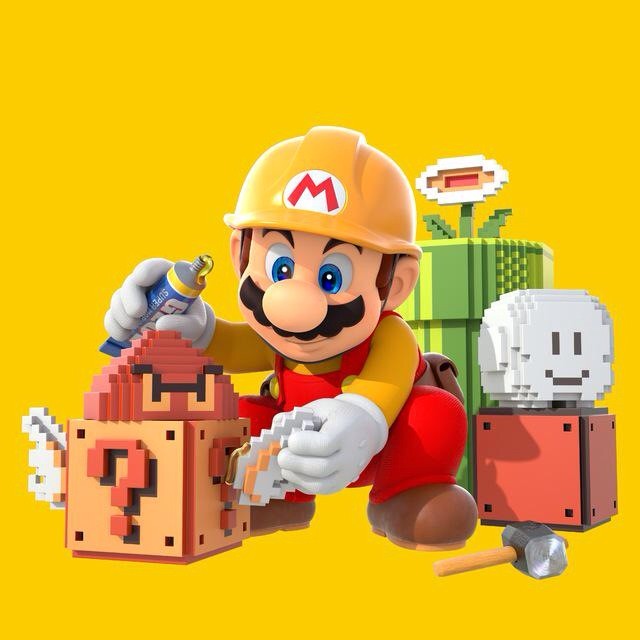This article is part of Mario Week, our seven day-long celebration of the 25th anniversary of Super Mario World and 30th anniversary of Super Mario Bros. To read more articles from Mario Week, go here.
///
Today we have a weird relationship to work. Old-school Marxists worried about alienation from labor back when our main economic outputs were physical goods—wheelbarrows, rocking-horses, hoop-skirts. Alienation is at the heart of the Dilbert-esque platitude that “you’re just a cog in the machine.” For Marx, that sense of your own cogishness was inevitable in a class-based society: You lose part of your humanity by being part of an economic caste.
And that sucks. People define themselves through their work. Work we’re proud of makes life meaningful. But many jobs—especially those which are consistently held by members of the middle- and lower-classes—enforce meaninglessness.
It would take a ton of theoretical wrangling to suss out the specific character alienation has taken on in our transition from a 19th century goods-based economy to today’s service-and-information-based economy, but the long and the short of it is that we still labor in the service of power today as always, but with a twist: We work for free. And we generate revenue for these companies in an attempt to reduce that sense of alienation. Ian Bogost has described this phenomenon of digital labor via sharing as “hyperemployment.”

The pithy way of saying all of this also explains why you don’t have to pay for services like Facebook, Twitter, tumblr, etc.: “If you aren’t paying for the product, you are the product.” In this case, “you” is your data, and the product, roughly speaking, is advertising that persuades you into buying new/more/other shit.
How do you work for these companies? Think about how dull Facebook would be if no one used it. With every status update, you create a new reason to bring people back to the site, which in turn generates ad revenue. Imagine how different social media would seem if every time a site used the word “user” it said “employee” instead: “Facebook had 968 million daily active employees on average for June 2015.” The big point this little rhetorical change gets at is this: Facebook is valuable because tons of people use it. Lots of people reblogging gifs makes tumblr a billion-dollar thing. Journalists refashioning their Twitter streams into reporter’s beats keeps the blue bird flying.
The point is that these companies give you affordances—a text-box to type in and, hopefully, an audience—to broadcast your political views and/or latte art. They usually call these “platforms,” a metaphorical launchpad for your idea. But we have to remember that, in Instagramming your baby back ribs at Chili’s, you’re not only assuring everyone of your ironic/earnest love for Chili’s in general (and baby back ribs in particular, in spite of the fact that they are made of “baby back”), but also adding value to both Instagram and Chili’s in the form of free—albeit ironically detached—advertising.
I’m thinking about all this because it made me anxious about Mario Maker. It’s a Platformer Platform, a toolbox for you to design 2D Mario levels with as many pipes, goombas, and coins as your heart desires (or the Wii U’s RAM allows). And then you can share those levels online. If you played the LittleBigPlanet series, the concept is similar to those games’ online modes.
The generous reading of Mario Maker is that it’s more like a Lego kit and less like Pinterest. Nintendo has given you the opportunity to make levels that are, by turns, fun, cruel, nearly impossible (though you have to be able to beat a level to upload it), insipid, or quite literally empty. It’s an easy way to try out being a level designer, which might leave you thrilled about the possibilities of game design as a profession, or hollowed out by how much of game design is nudging and then immediately un-nudging pixels.
By contrast, the skeptical reading of Mario Maker is that it has fully bought in to the rhetoric of Silicon Valley (after all, the shiny new badge of work-identity elitism, “maker,” is half of the title). Think about it this way: You’re buying a game that essentially allows you to work. It’s got a kind of eau de pyramid scheme about it. And the most that you get in exchange for your novel ideas about how to reconfigure Nintendo’s kit (which they may then use at some point in a future Mario game) is Fake Internet Points, a legal term of art on sites like reddit and Imgur. When you upload a level, users can star it, comment on it, and generally push it skyward, such that the cream should theoretically rise to the top. That said, reddit is a perfect example of how that would-be egalitarianism of upvote/downvote is subverted by simply being first to comment or trollish self-immolation. An upvote system doesn’t necessarily reward hard work or cleverness (though it can). But even if it does, you’re still working—designing, tweaking, testing, editing, etc.—for upvotes. It’s a toy economy, a kindergarten-ready gold star system created by a giant company interested in joy but in need of profit.

Now, it’s not fair for me to say that creating levels in Mario Maker is all work. It’s intuitive and fun, especially in the anarchical question-and-answer process when you first start messing around with the editor: How many Koopas can I stack on top of one another? What if there were only springboards to walk on? Can you pick up a tanooki suit while falling? Breaking Mario Maker is play.
But the actual problems of level design—Could you finish this course the first time you play it? Does it flow? Can a player who doesn’t know about sprint make that jump? Will it break if you don’t get Yoshi there?—are work. Professional level designers and playtesters would be rightly insulted if we didn’t see it as such. And Mario Maker also gives you the means to do the work of level design in a pretty serious way: After you’ve uploaded a level, you get playtester data as people try it out, so you can see where they die, how many tries it takes, etc.
The comparison I’m suggesting between the new economics of trading your labor for a digital soapbox or Fake Internet Points and Mario Maker does get wobbly at the level of finance. You pay for Mario Maker; Facebook is “Free” as in no-such-thing-as-a-free-lunch. Mario Maker doesn’t advertise to you. But it does depend on your work to succeed.
If you want to work for Nintendo designing Mario games, this might be the best possible way to create a job application. But for most of us, Mario Maker seems predicated on the idea that you value the praise of the community enough to do the work of level design. And, if you do, that’s great. But we need to be cognizant of our labor as having value that extends beyond likes or notes or retweets since it used to be measured in dollars and hours.
Mario Maker presumes the existence of a community to realize its potential. We’ll be releasing a proper review once that community has gotten to work on it.
///
This article is part of Mario Week, our seven day-long celebration of the 25th anniversary of Super Mario World and 30th anniversary of Super Mario Bros. To read more articles from Mario Week, go here.
Body images via Servizi Multimediali and Jun Seita
